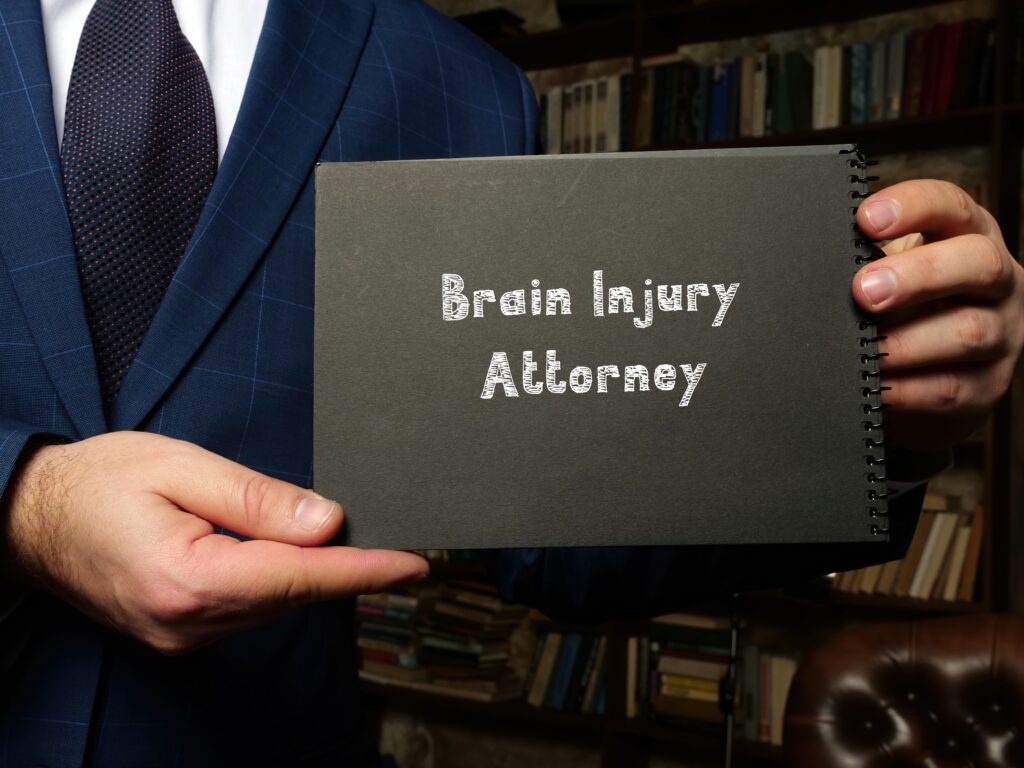A brain injury claim can take weeks, months, or years to complete. Each case is unique, and several factors can determine the timeframe for completing a brain injury claim. One key variable is whether those liable for the injury are willing to negotiate in good faith, as this can determine whether a lawsuit or trial is necessary.
Completing a trial can lengthen the time it takes to complete a brain injury claim. However, a trial can be worth the time investment if it results in a fair financial recovery for the injured party. Brain injury claims can be phenomenally complex and time-intensive, so consider allowing a Chicago brain injury attorney to lead your claim.
How Long a Brain Injury Claim Takes Depends on Several Variables
Once you retain a lawyer, they will consider all case-related variables and provide some kind of timeline for your case if they can do so accurately. There are many factors a lawyer must consider when evaluating a case timeline, including:
The Event(s) That Caused the Brain Injury

Your brain injury lawyer must investigate and document the event or events that led to the brain injury. Some events are more complicated or nuanced than others and may take longer to investigate. For instance, consider that:
- When a brain injury results from a car accident, determining fault for the accident may be fairly uncomplicated
- If a brain injury occurs during a medical malpractice event, establishing liable parties’ negligence may be more complicated
While your lawyer will investigate any harmful event as expediently as possible, the complexity of such harmful events is one factor to consider.
The Complexity and Severity of the Brain Injury
There were 214,000 hospitalization-worthy brain injuries in 2020, and each of those injuries was unique (as were the other brain injuries that did not result in hospitalization). From hematomas to concussions, victims can suffer significantly different injuries—even two injuries with the same name may vary greatly.
Your brain injury lawyer will need to:
- Understand your injury
- Document your injury
- Determine what healthcare services you’ll need for your injury
- Monitor the recovery process
The more complex and long-lasting your injury is, the more time your brain injury attorney may need to determine your recovery timeline and evaluate medical costs.
The Share of Fault for the Brain Injury
Brain injuries are often the fault of a single party. However, in some cases, multiple parties share fault for a brain injury.
Take an example of a motorist speeding through an intersection. Another motorist runs a red light and strikes the speeding motorist’s vehicle. This accident results in a brain injury. While the motorist who ran the red light has the most faults, the speeding motorist may share some faults, too.
Disagreements about who is at fault for what percentage of a brain injury can prolong the claims or legal process.
The Liable Parties
The parties who owe you compensation can affect how long your brain injury claim takes. Some liable parties may:
- Be unwilling to accept responsibility for wrongdoing
- Be fighters by nature
- Be determined not to part with their money
- Be willing to prolong a case even if they know they’ll ultimately pay the compensation the plaintiff or claimant deserves
Each defendant is different. If you hire a lawyer with a lengthy background negotiating settlements and leading court cases, they will take on even the most hard-headed, tight-pocketed defendant(s).
The Approach Liable Parties Take to Your Claim
Brain injuries can be expensive, especially if they prove disabling. When faced with a large payout (or any payout, for that matter), some liable parties will:
- Accuse the claimant or plaintiff of causing their own brain injury
- Find reasons to reject a claim
- Assign a low value to the claimant’s losses
- Offer a lowball settlement and pressure the claimant or plaintiff to accept
- Take other measures to avoid paying the compensation they owe
These measures will likely prolong the time it takes to resolve a brain injury claim. A lawyer will address such measures head-on, making it clear that you intend to fight for all the compensation you deserve.
Whether Your Case Requires a Lawsuit or Trial
Having to file a lawsuit (rather than settle through the insurance process) generally spells a longer case. The same is true of going to trial, to an even greater degree.
Most cases settle, and this includes brain injury claims. Even if your lawyer files a lawsuit for you, they can continue to pursue a settlement. However, once your case goes to trial, this can add months (or more) to the length of your brain injury claim.
What Can I Do to Reduce the Time My Brain Injury Claim Takes?
Many factors affecting your case’s duration may be beyond your control. For example, you cannot control whether liable parties negotiate in good faith or unnecessarily delay your claim.
However, there is one thing many brain injury victims do to resolve their claim as soon as possible: Hire a brain injury attorney.
While a lawyer will not guarantee that they can resolve your case in a specific period of time, a brain injury lawyer will:
- Have the time and focus necessary to resolve your case as soon as possible
- Handle your case with urgency
- Know how to spot bad-faith tactics (like lowball offers) right away and minimize time spent indulging in such tactics
- Promptly gather evidence and documentation
- Draft and file paperwork quickly and accurately, preventing unnecessary delays
- Work to secure a settlement or judgment as soon as possible
Those with brain injuries have many responsibilities to shoulder—symptom management, recovery, personal life, and professional obligations. Your lawyer’s focus will be your case, as this is their job. This singular focus may allow a lawyer to build a strong case more quickly than you can on your own.
Common Reasons for Hiring a Brain Injury Lawyer

Hiring a lawyer can seem like a big decision, and you should know exactly why you’re hiring an attorney for help. Consider some of the many reasons why those with brain injuries hire attorneys, including:
- The debilitating nature of brain injuries: Symptoms of brain injuries range from dizziness to headaches to long-term brain damage. Any one of these symptoms can be debilitating, and your brain injury may cause many such symptoms. Even strong-willed, independent people may be unable to handle their case while dealing with brain injury symptoms.
- Law firms’ personnel and resources: You want to have the strongest case possible, as your financial recovery depends on it. A law firm’s attorneys, paralegals, investigators, experts, and financial resources may directly translate into the caliber of case you deserve.
- The low financial risk of hiring an attorney: Your brain injury lawyer will likely use a low-risk, contingency fee structure. If so, you won’t pay your lawyer any upfront or out-of-pocket compensation. The firm will cover your case, and your lawyer will only receive a fee if you receive compensation for damages.
- Lawyers’ experience: Nobody who leads a brain injury case should be guessing. You want reliable, experience-based advice, and that’s what you get when you hire a lawyer with a proven track record.
These are just a few of the many reasons you might hire a brain injury lawyer. Your attorney will advise you throughout the claims process. If you choose to file a lawsuit, your lawyer will lead that process, too.
How a Brain Injury Lawyer Can Help with Your Brain Injury Claim
Your lawyer will handle every case-related responsibility they can. You may have to take some steps, like giving a statement to an insurance company. A lawyer will even help with such steps, ensuring you face as little responsibility and stress as possible.
Allow your lawyer to handle the lion’s share of your case by:
Documenting the Effects of the Brain Injury
Brain injuries affect victims in both financial and non-financial ways. Your attorney will obtain all documentation detailing the effects of your injury, which may include:
- CT scans and other medical images of the brain injury (and any related injuries)
- Bills for diagnostic care, treatment, and other medical services
- Proof that you have been unable to work because of the brain injury (and have lost income as a consequence)
- Mental health experts’ testimony about the pain and suffering resulting from your brain injury
Your attorney will find documentation for every type of harm stemming from your brain injury. They may hire one or more experts to testify about your damages, provide diagnoses, and assist your case in other ways.
Securing Evidence of Liable Parties’ Negligence
Your lawyer will detail specific instances of negligence that led to your brain injury. They may once again work with experts whose testimony or services indicate who is at fault for your injury.
Calculating the Cost of Your Damages
Your lawyer will calculate a case value based on the cost of:
- Current damages
- Future damages
- Economic damages
- Non-economic damages
Attorneys understand the complex nature of pain and suffering, a common type of non-economic harm among those with brain injuries. Even though this class of damage doesn’t usually have a clear financial cost, lawyers use multiple values to calculate the value of pain and suffering.
Negotiating a Settlement with Liable Parties
Your lawyer may negotiate with insurance representatives and civil defense lawyers in pursuit of your financial recovery. Settlement negotiations often involve:
- Presenting settlement demands to determine how close (or far apart) parties are to a settlement
- Presenting evidence of fault to establish who caused the brain injury
- Citing specific documents (like insurance policies) that indicate who must pay for the injured party’s damages
- Explaining the calculation of your damages
- Presenting documentation of your damages
Attorneys understand that they will almost always receive pushback from liable parties. An experienced attorney will structure their demands in a way that accounts for such pushback. A capable lawyer must also be willing to stand behind their calculations and fight relentlessly for their client’s best interests.
Discussing a Lawsuit and Trial with You (if Your Case Comes to It)
If your case reaches a point where a lawsuit becomes a logical step, your lawyer will discuss the filing process. They may explain that:
- Liable parties have not offered a fair financial settlement
- A lawsuit indicates you are serious about securing all the compensation you deserve
- A lawsuit is a step toward trial, but your lawyer can still negotiate a settlement after filing a lawsuit
- Trial is a possibility, but filing a lawsuit does not necessarily mean your case will go to trial
Your case will have unique features and considerations that your lawyer will discuss. It is your brain injury claim, and your lawyer will empower you to make decisions that are right for you.
Your Brain Injury Lawyer Will Immediately Seek the Compensation You Deserve
Your lawyer’s mission will be to obtain all the compensation you deserve as soon as possible. Their financial demands will be based on the individual value of your recoverable damages, which may include:

- Medical costs
- Lost income (temporary or permanent)
- Lost earning power
- Pain and suffering
- Mental health treatment costs
- Property expenses (which are relevant in auto accident cases and certain other cases involving brain injuries)
An attorney can also represent you if a loved one passes away because of a fatal brain injury. Your lawyer will compassionately identify your recoverable damages, identify liable parties, and work to secure the compensation you deserve.
What Should I Do While My Lawyer Fights for a Financial Recovery?
Once you find a qualified brain injury lawyer, you will simply:
- Complete your free consultation to ensure they are a strong fit to lead your case
- Hire a law firm
- Follow your lawyer’s advice
- Rest and follow your doctor’s advice
- Focus on your physical and mental recovery
- Not worry about what you need to do for your legal claim
Your lawyer will contact you regularly to update you about the case and provide any necessary instructions.
Don’t wait to find a brain injury lawyer, as they may have a limited time to file your case. Consultations are free; seek yours today.



